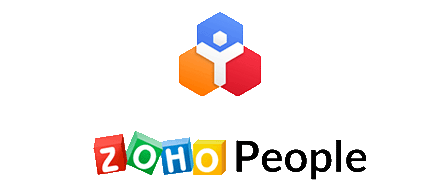The business industry has become fiercely competitive, and small businesses constantly need to stay ahead of the curve to maintain a competitive advantage. However for small businesses who don’t have large budgets, this can be challenging. As a result, these companies need to leverage every cost-effective option that they can.
One of these tools is the use of customer relationship management (CRM) software. It is used to streamline and manage all communications with new and existing customers. This gives businesses a good idea of where their sales are at, and where they could improve.
Some of the best CRM providers include:
Most CRM software has a basic dashboard showing all of your leads and their progress. Many packages will include built-in calling and keep a record of all contact with a client. If you’re looking for an intensive lead-to-close solution, many of the services on this list have you covered.
In no particular order, here is our list of the top CRM software for small businesses UK entrepreneurs should know about.
Pipedrive

Pipedrive is one of the cleanest, simplest CRM solutions out there; its sleek lines and intuitive features help you to stay on track and focus on making sales. This simplicity does come at a cost: you won’t find project management, invoicing or built-in phones, but many businesses will already have these areas covered elsewhere.
If you’re a Trello user, Pipedrive integrates beautifully: just add it as a power-up on one of your boards and you’re ready to go. In fact, one of Pipedrive’s best qualities is that it’s compatible with a veritable smorgasbord of third-party apps for accounting, productivity, calendar, phone calls, analytics and more.
Zoho CRM

Zoho is one of the biggest names in software as a service, and for good reason: the company has roughly 50 separate applications covering everything from recruitment to app design. If you’re looking for a cloud-based solution to multiple parts of your business, Zoho could well be your best option.
Zoho CRM’s features will see you through the whole process from capturing leads to invoicing. Custom web forms, built-in phone lines and integration with social media and email are all accounted for. Business owners looking for in-depth project management, invoicing and HR will find it in Zoho’s extended suite; everything integrates seamlessly, though adding extra software will incur additional monthly fees.
HubSpot

HubSpot is another suite that tackles marketing, sales and service together, and it scales beautifully from the smallest of businesses to enterprise. Incredibly, HubSpot CRM is free for unlimited users and holds up to one million contacts and companies. Marketing Hub, Sales Hub and Service Hub are also free for small businesses, albeit with limited features.
HubSpot CRM’s features include conversational bots, email tracking, Facebook and Instagram lead ads and a host of integrations including MailChimp, Eventbrite and Slack.
Freshsales

Freshworks’ CRM offering, Freshsales, pulls email, phone calls, event tracking and automation into one neat package. While the majority of the CRM software we’ve discussed in this post lacks built-in phone and email, Freshsales incorporates it as the main feature and also creates profiles for every contact that include recent conversations, open deals and useful information.
Capsule

Capsule has an interactive interface that is easy for teams to navigate and streamlines projects to avoid clutter. Tasks can be assigned to specific team members, and it provides an overview for management to see what work is being done and by who. It provides detailed reports for deeper insights.
Act!

Act! offers CRM software that creates rich customer profiles for you to gain insight into customer behaviour. In addition to this, you can ensure that every interaction is personal. Offline access means that you can still stay up-to-date from wherever you are or if you’re travelling, and you can locate any customer information as you need it.
Monday.com

With Monday.com, you can centralise all communication with your customers and keep track of performance targets. Existing and new data can be seamlessly integrated for easy access. You can set automations to avoid manual work for efficiency and time-saving. All of your data is displayed on one dashboard for quick navigation and can be accessed from anywhere.
What is CRM Software?
As its name suggests, Customer Relationship Management software (CRM software) is a tool that allows you to organise and better manage the relationship between a business and its customers. You will find specific CRM options for large businesses, startups as well as specific CRM software for small businesses. This kind of software is a way to manage both existing and potential customers. It can be used to analyse the interactions a company has with its customers, and measure relevant data surrounding this.
The main aim of CRM software is to help promote the relationship between a business and its customers, helping with both acquisition and retention, thereby promoting sales.
CRM platforms can connect various different departments in a business, including sales, marketing, customer services and more. By connecting these different departments all onto one platform, CRM software can help to organise plans, actions and notes from all relevant areas of the business, which can better communication, and streamline business operations.
More from Guides
- Top Alternatives To Dropbox
- How to Use AI to Create Investor Reports
- Can You Measure Productivity Objectively?
- What Do I Need To Do To Use A Payroll System?
- Why Professional Printing Services Can Be Important For Business
- Mental Health At Work: HR’s Role In Supporting Employees
- 10 Ways AI Is Changing What Talent Looks Like in Commodity Markets
- Best Alternatives To WhatsApp
Do I Need CRM Software for My Business?
Businesses can use CRM software to better understand their relationship with customers and how to improve this, resulting in more leads, increased sales, and improved customer retention. As previously mentioned, this software can also improve communication between departments by organising all relevant areas of the business onto one cohesive platform.
Depending how your CRM is built and which CRM you use, you may bee a specific professional to install it in your business. You may need to hire a Microsoft dynamics CRM consultant, or a HubSpot specialist or something else, depending on the CRM you need and the needs of your company.
This type of software can therefore be an incredibly valuable asset to any business, helping to generate sales and further the success of a company.
Is CRM Good for Small Businesses?
CRM software can help to streamline a business’s customer operations. It can help to gain a deeper insight into the interactions customers have with particular services, from which a business can analyse and adjust to enhance this experience, further promoting an increase in sales.
Whilst CRM software can be incredibly beneficial for a business, many small business owners may be hesitant to use it – unfamiliar with the technology, and concerned that it can only be beneficial to larger companies.
However, as previously mentioned, CRM can be useful for businesses of all different shapes and sizes. In fact, learning about your customers and the interactions they have with your business can be incredibly useful for companies that are just starting out, or wanting to scale up, enabling them to better tailor their products and services to the customers’ preferences.
How a CRM Benefits Small Businesses
CRM software is a business tool that doesn’t break the bank, but provides valuable insights that a business needs for growth.
It organises a large amount of data in one accessible platform, allowing for scalability and the growth of client bases. In addition to this, its reporting and analytics reports can assist with better-informed decision-making to grow the company’s profitability.
Can a CRM Increase Business Sales?
With CRM, businesses can keep track of customer buying journeys from start to finish.
By analysing this data, businesses can see which products customers are wanting, and marketing efforts can be adjusted to accommodate these. You can also interact with customers in real-time and communicate with them on their needs with the goal of closing a sale. Additionally, you can see where your sales may be falling short and implement strategies to improve these.
Improved Customer Service
Because CRM provides data in real-time, businesses can have a quicker response rate. By responding to customer queries quickly and efficiently, businesses have a better chance of securing a sale and creating solid customer relationships. Maintaining these relationships with customers is crucial for small businesses to establish themselves as industry leaders.
Centralised Data
All customer data is consolidated in one place with CRM software, making it easy for employees and management to access. It can be a huge time-saver as you don’t need to spend hours looking for information. It also reduces the risk of incorrect or duplicated information, which can affect accurate reporting. Everyone on the team will have access to the real-time information that is constantly updated to assist with any collaboration or decision-making.
Accurate Sales Forecasting
If you don’t forecast your sales as accurately as possible, it can result in financial loss to the company. Over or under-stocked inventory can result in a loss of sales and unhappy customers. CRM provides automated reports with historical data that can be analysed for trends or patterns. Management can use this data to guide decision-making for future sales and increase profitability.



